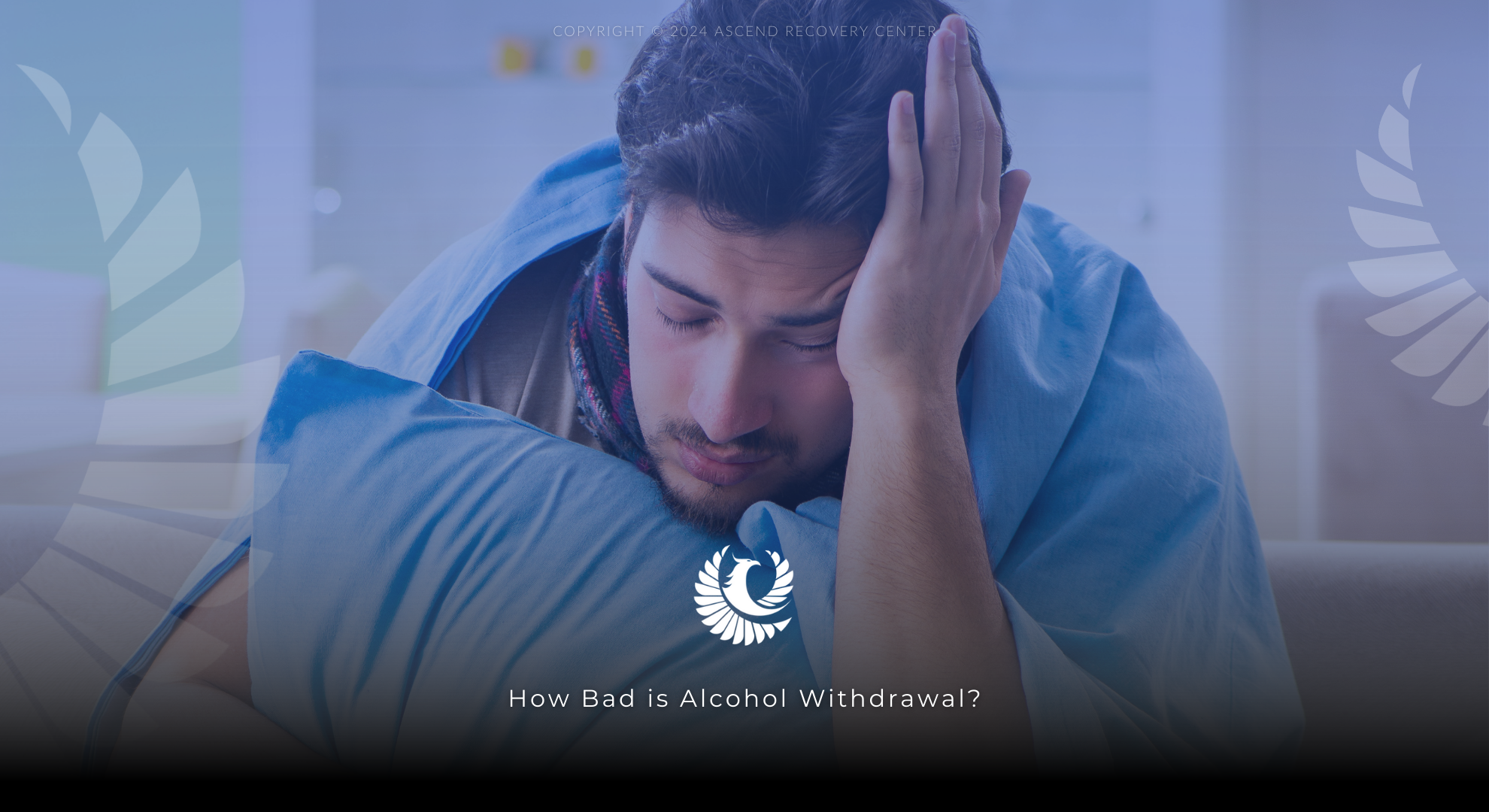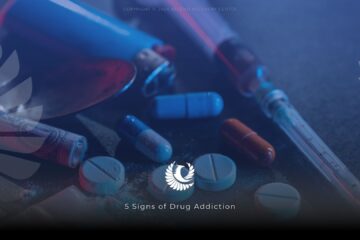Alcohol withdrawal is a challenging process that individuals may experience when they stop drinking or significantly reduce their alcohol intake. The journey towards sobriety can be accompanied by various symptoms that vary in severity and duration. By understanding the alcohol withdrawal timeline, individuals can better prepare themselves for what to expect during this crucial phase of recovery. In this article, we will explore the stages of alcohol withdrawal, the symptoms that may arise at each stage, and the importance of seeking appropriate care and support throughout the process.
The Stages of Alcohol Withdrawal
Alcohol withdrawal occurs in distinct stages, with symptoms appearing at different times after the last drink. While the timeline may vary from person to person, understanding the general progression of withdrawal can provide valuable insights into the recovery journey.
Stage 1: Early Symptoms (6-12 hours after the last drink)
During the initial stage of alcohol withdrawal, individuals may begin to experience mild symptoms within 6 to 12 hours after their last drink. These symptoms can include headaches, anxiety, tremors or shakes, insomnia, fatigue, mood changes, gastrointestinal disturbances, and elevated heart rate. While these symptoms may be uncomfortable, they are manageable without medical intervention.
Stage 2: Moderate Symptoms (24-48 hours after the last drink)
As withdrawal progresses, individuals may enter the second stage, characterized by more pronounced symptoms. Typically occurring between 24 to 48 hours after the last drink, this stage may involve increased blood pressure or heart rate, confusion, mild hyperthermia, and rapid abnormal breathing. It is important to note that seizures may also occur during this stage, necessitating close monitoring and potential administration of anti-seizure medications.
Stage 3: Severe Symptoms (48-72 hours after the last drink)
The third stage of alcohol withdrawal, which usually begins around 48 to 72 hours after the last drink, is marked by the emergence of severe symptoms. These symptoms can include visual or auditory hallucinations, seizures, disorientation, impaired attention, and delirium tremens (DTs). DTs, while rare, are potentially life-threatening and require immediate medical attention. It is crucial to seek professional care and support during this stage to ensure the safety and well-being of individuals experiencing severe withdrawal symptoms.
Post-Acute Withdrawal Syndrome (PAWS)
In some cases, individuals may continue to experience lingering withdrawal symptoms for an extended period after the acute withdrawal phase. This phenomenon is known as post-acute withdrawal syndrome (PAWS). PAWS can manifest as sleep disturbances, fatigue, changes in mood, and difficulty concentrating and may persist for weeks, months, or even longer. While these symptoms can be challenging, they are a normal part of the recovery process and can be managed with ongoing support and treatment.
Symptoms of Alcohol Withdrawal
Alcohol withdrawal symptoms can vary in intensity and duration depending on several factors, including the severity of alcohol dependence and an individual’s overall health. It is important to note that not everyone will experience the same symptoms, and the manifestation of these symptoms can differ from person to person. Let’s explore the common symptoms associated with alcohol withdrawal:
Mental Symptoms
- Anxiety: Feelings of unease, restlessness, and apprehension are common during alcohol withdrawal. Individuals may experience heightened levels of anxiety as their body adjusts to the absence of alcohol.
- Mood Changes: Individuals may experience mood swings, irritability, and heightened emotional sensitivity during withdrawal. These mood changes are a result of the brain’s adjustment to the absence of alcohol.
- Delirium Tremens (DTs): Delirium tremens, characterized by severe confusion, hallucinations, tremors, and agitation, is a life-threatening condition that can occur in a small percentage of individuals experiencing alcohol withdrawal. Immediate medical attention is crucial in cases of DTs.
- Disorientation and Impaired Attention: Confusion, disorientation, and difficulty focusing are common symptoms during severe alcohol withdrawal. These cognitive impairments can interfere with daily functioning and require professional care.
- Visual or Auditory Hallucinations: Visual or auditory hallucinations can occur in severe cases of alcohol withdrawal. These hallucinations can be distressing and may require immediate medical attention.
Physical Symptoms
- Tremors or Shakes: Tremors, especially in the hands, are a typical symptom of alcohol withdrawal. These involuntary movements can range from mild tremors to more pronounced shaking.
- Insomnia: Sleep disturbances, including difficulty falling asleep or staying asleep, are frequently reported during alcohol withdrawal. Insomnia can contribute to feelings of fatigue and exacerbate other withdrawal symptoms.
- Headaches: Headaches are a common complaint during alcohol withdrawal. These headaches can vary in intensity and may persist for several days.
- Gastrointestinal Disturbances: Digestive issues, such as nausea, vomiting, and abdominal pain, are common during alcohol withdrawal. These symptoms can contribute to discomfort and may require medical intervention in severe cases.
- Elevated Heart Rate: Increased heart rate, also known as tachycardia, is a possible symptom of alcohol withdrawal. It is important to monitor heart rate during withdrawal, especially in cases where it becomes excessively rapid or irregular.
- Hyperthermia: Some individuals may experience elevated body temperature during alcohol withdrawal. It is essential to ensure proper hydration and monitor body temperature to prevent complications.
- Seizures: Seizures can occur during alcohol withdrawal, particularly in individuals with a history of heavy alcohol use. Seizures are considered medical emergencies and necessitate prompt medical intervention.
It is important to remember that withdrawal symptoms can be unpredictable, and individuals may not experience all the symptoms listed above. Professional guidance and support are essential for a safe and comfortable withdrawal process.
Seeking Help and Support
Alcohol withdrawal can be a challenging and potentially dangerous process. It is crucial to seek appropriate care and support throughout the journey toward sobriety. If you or someone you know is experiencing alcohol withdrawal symptoms, consider the following:
Medical Evaluation
Consulting with a healthcare professional experienced in addiction medicine is essential for a comprehensive evaluation of your alcohol withdrawal symptoms. A healthcare provider can assess the severity of your withdrawal symptoms, evaluate any underlying health conditions, and recommend the most appropriate course of treatment.
Inpatient or Outpatient Treatment
Based on the severity of withdrawal symptoms and individual needs, healthcare professionals may recommend inpatient or outpatient treatment for alcohol withdrawal. Inpatient treatment involves staying at a facility where medical professionals can provide round-the-clock care and monitoring. Outpatient treatment allows individuals to receive treatment while living at home or in a supportive environment, attending scheduled therapy sessions and support groups.
Medications and Therapies
Medications, such as benzodiazepines, may be prescribed to alleviate withdrawal symptoms and prevent complications. Other medications, such as anticonvulsants or antipsychotics, may be used as supportive care. Medication-assisted treatment is also an option for those who are struggling with maintaining sobriety after detoxing from alcohol. Therapies, including cognitive-behavioral therapy (CBT) and individual or group counseling, can help individuals address the underlying causes of alcohol addiction and develop coping strategies for relapse prevention.
Ongoing Support and Aftercare
Recovery from alcohol addiction requires ongoing support and aftercare. Engaging in support groups, such as Alcoholics Anonymous (AA) or other mutual-help groups, can provide a network of understanding peers who can offer guidance and encouragement. Aftercare programs, including outpatient therapy and counseling, can help individuals maintain sobriety and address any challenges that arise during the post-withdrawal period. Joining your treatment center’s alumni groups is also a great option for ongoing support.
Understanding the stages and symptoms of alcohol withdrawal is crucial for individuals embarking on the path to sobriety. By recognizing the unique challenges associated with each stage and seeking appropriate care and support, individuals can navigate the withdrawal process with greater confidence and safety. Remember, you are not alone in this journey, and Ascend Recovery Centers is here to guide you toward a healthier and happier life free from alcohol dependence.








